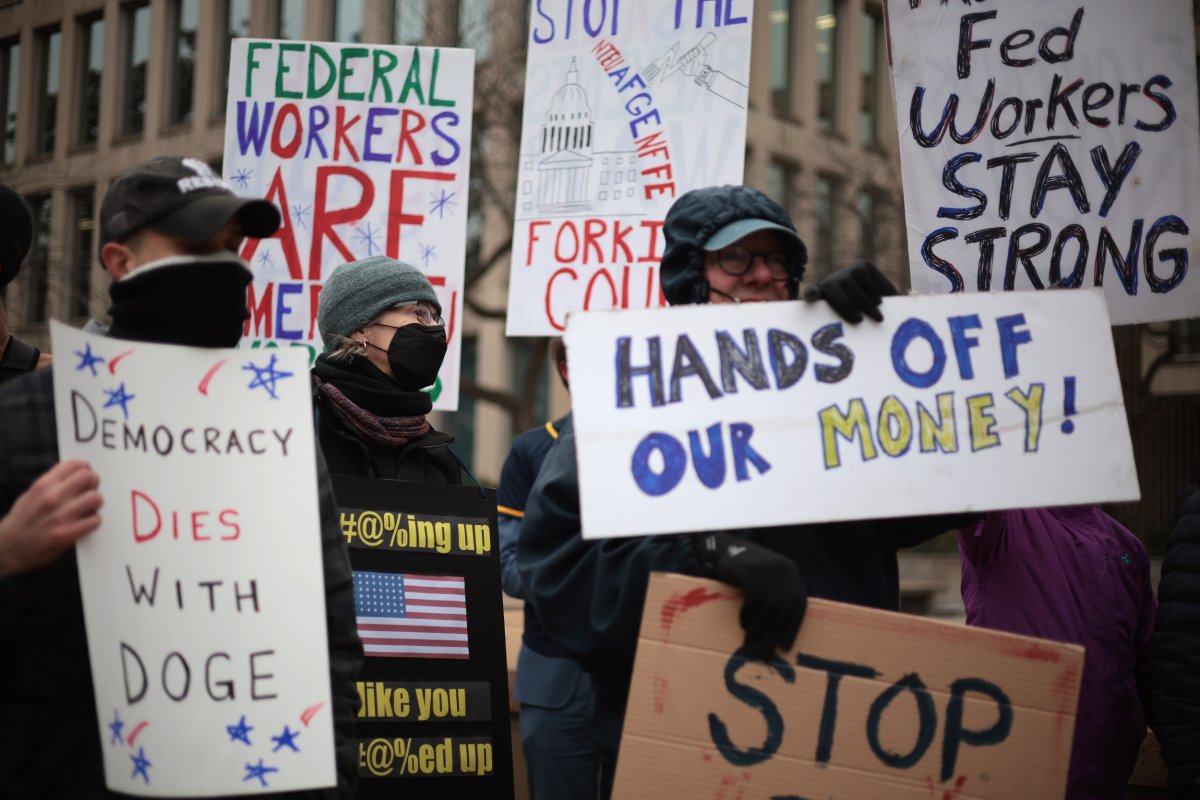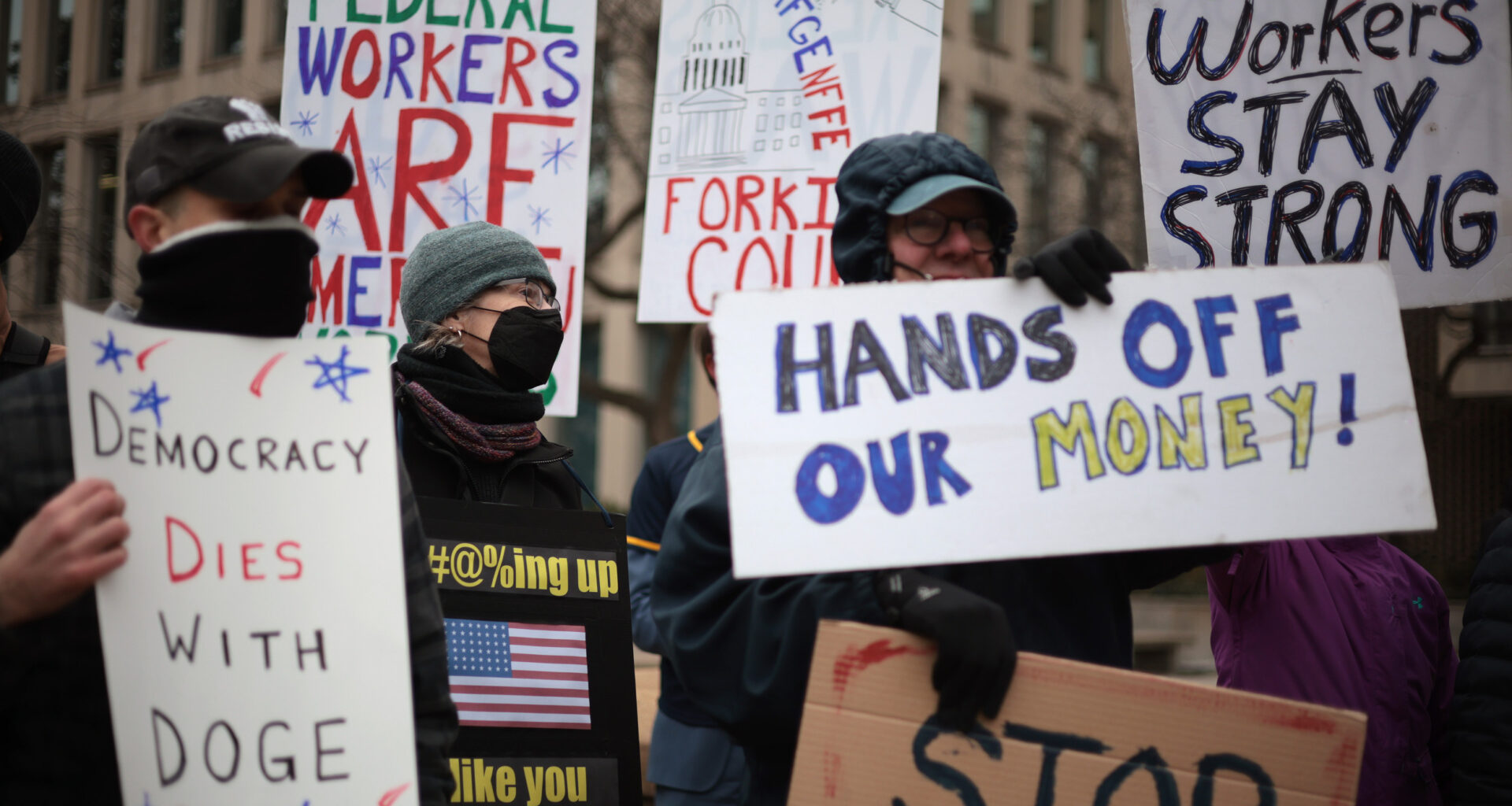A divided federal appeals court has ruled that the Trump administration’s Department of Government Efficiency (DOGE) can access sensitive personal data held by several federal agencies, rejecting claims that the move violates privacy protections.
In a 2-1 decision issued on Tuesday, the U.S. Court of Appeals for the Fourth Circuit vacated a lower court’s preliminary injunction that had blocked DOGE-related personnel from obtaining administrator-level access to information at the Treasury Department, the Office of Personnel Management and the Department of Education. The ruling remands the case for further proceedings.
Newsweek has contacted DOGE for comment via email outside regular office hours. The Justice Department declined to comment following the ruling.
Why It Matters
A divided federal appeals court ruling in favor of DOGE could significantly shift the balance between privacy protections and executive authority.
The decision to grant embedded cross-agency teams broad, administrator-level access to sensitive personal data—including Social Security numbers, tax records and health information—strengthens the president’s ability to direct internal modernization efforts across the federal bureaucracy.
It also sets a potential precedent that could make it harder for unions, advocacy groups and individuals to challenge similar data-access policies in the future, narrowing judicial oversight when efficiency initiatives intersect with privacy concerns.

Anti-DOGE protesters outside the Theodore Roosevelt Federal Building headquarters of the U.S. Office of Personnel Management in Washington, D.C., on February 5.
Anti-DOGE protesters outside the Theodore Roosevelt Federal Building headquarters of the U.S. Office of Personnel Management in Washington, D.C., on February 5.
Alex Wong/Getty
What To Know
The case stems from an executive order that President Donald Trump signed on January 20, which created DOGE to modernize “Federal technology and software to maximize governmental efficiency and productivity.”
The order directed agency heads to establish internal DOGE teams and provide “full and prompt access” to unclassified systems and records.
Initially headed by Elon Musk, DOGE has been a controversial element of Trump’s second term, overseeing spending and staffing cuts across agencies and facing multiple lawsuits.
As a special government employee, Musk could serve in the role for only 130 days, and his tenure as the head of DOGE ended in May shortly before a public disagreement with the president.
In February, U.S. District Judge Deborah Boardman granted a temporary restraining order and later a preliminary injunction limiting DOGE affiliates’ access to certain data. The appeals court stayed that injunction in April pending appeal.
The plaintiffs—a coalition that includes the American Federation of Teachers, several other labor unions and individual recipients of government benefits—had argued that granting DOGE affiliates such access violated the federal Privacy Act and the Administrative Procedure Act (APA).
They said the data involved could include Social Security numbers, citizenship information, tax records, health histories and other personal identifiers.
Judge Julius Richardson, joined by Judge G. Steven Agee, concluded that the plaintiffs had not shown a likelihood of success on the merits sufficient to justify preliminary relief.
Writing for the majority, Richardson said, “The Privacy Act does not prohibit sharing information with those whose jobs give them good reason to access it.” He also compared DOGE’s broad modernization mandate to that of a consultant who must first survey systems to determine necessary improvements.
The opinion also questioned whether the plaintiffs had standing to sue, noting that they had not alleged their specific records had been accessed, and whether the actions at issue constituted “final agency action” under the APA. The court further observed that the Privacy Act’s civil remedies might preclude APA-based claims for equitable relief.
Richardson’s opinion cited a June U.S. Supreme Court order in a separate case that allowed DOGE access to Social Security Administration data while litigation continued. “This case and that one are exceedingly similar,” Richardson wrote, adding that the precedent informed the court’s equitable discretion.
In dissent, Judge Robert King argued that the district court acted “quickly—but extremely carefully” in blocking DOGE’s access given the scope and sensitivity of the data. King warned that the executive order had granted “unfettered, unprecedented, and apparently unnecessary access” to personal information for millions of Americans and criticized the majority for adopting what he described as a “heightened standard” for likelihood of success.
The unions involved, which include the National Federation of Federal Employees and the International Association of Machinists and Aerospace Workers, did not immediately respond to requests for comment.
What People Are Saying
Aman George, senior counsel at Democracy Forward, commenting on a different federal court ruling that declined to block DOGE’s access to health and labor data, said in a news release on June 27: “While today’s decision is disappointing, the court made clear it shares our deep concerns. We are committed to continuing this case and holding the administration accountable for exposing millions of Americans’ private records to politically motivated operatives with no legal authority to access them.”
Justice Ketanji Brown Jackson, joined by Justice Sonia Sotomayor, sharply criticized the Supreme Court’s June decision, writing in dissent: “In essence, the ‘urgency’ underlying the government’s stay application is the mere fact that it cannot be bothered to wait for the litigation process to play out before proceeding as it wishes.”
What Happens Next
The appeals court’s decision does not end the litigation. The case returns to the district court for further proceedings on the plaintiffs’ underlying claims.
The outcome represents a significant legal victory for the administration’s DOGE initiative, reinforcing earlier high-court signals that agency-embedded DOGE teams may access certain records to perform modernization work. Still, the broader legal battle over the scope of such access—and its compatibility with privacy protections—remains unresolved.
